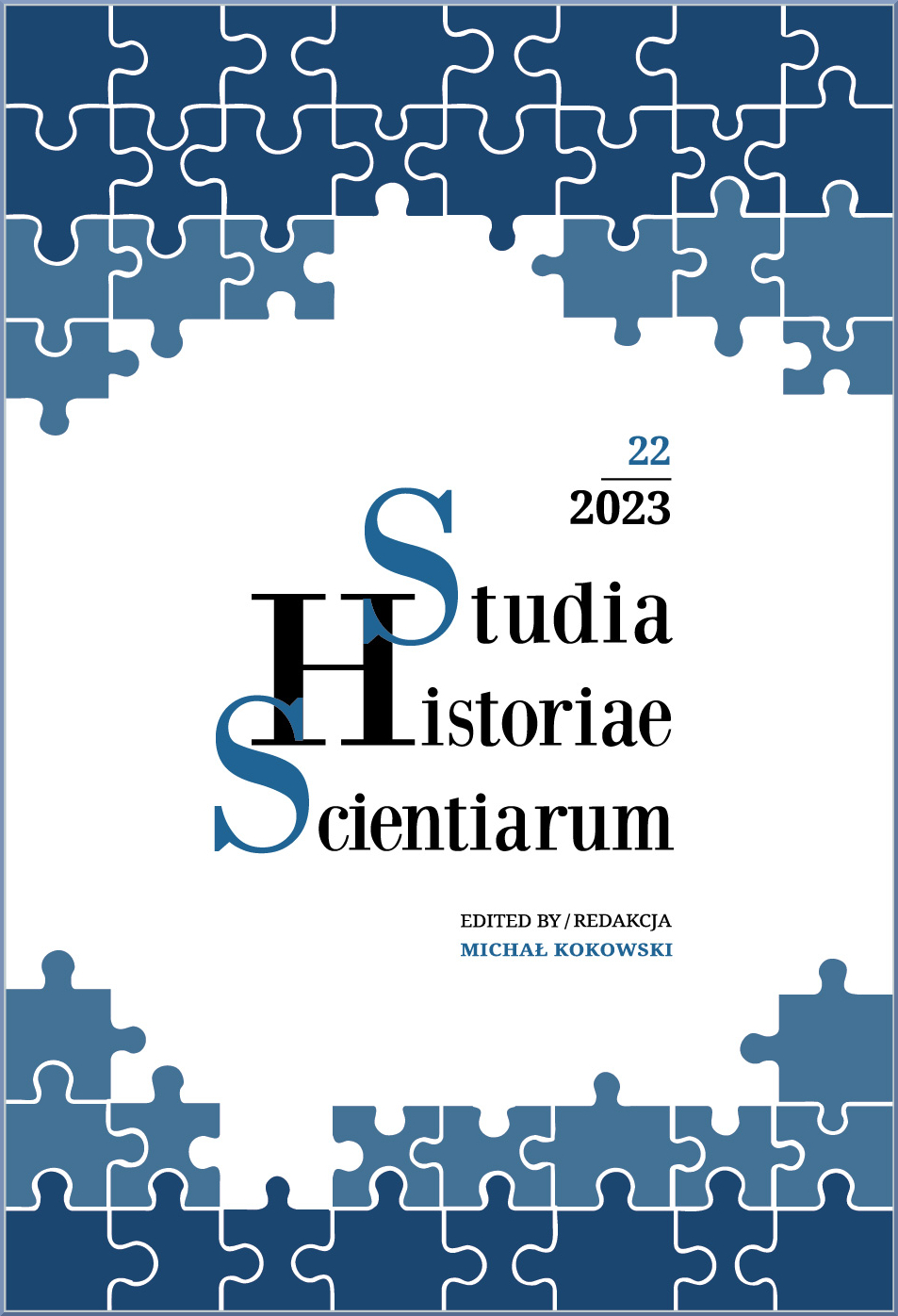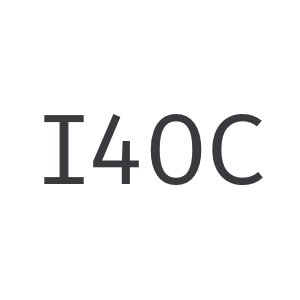Thomas Kuhn, Stefan Amsterdamski, and the Cycles of Scientific Development
DOI:
https://doi.org/10.4467/2543702XSHS.23.006.17697Keywords:
development of science, cognitive development, discontinuity, developmental cycles, paradigm, ideal of science, criticismAbstract
In his most seminal work, The Structure of Scientific Revolutions, Thomas S. Kuhn advances a notion that science is embedded in historically contingent constellations of practices and ideas. In this view, history is part and parcel of science. Science develops by transforming that, which it emerges from – a theme later picked up by Polish philosopher of science, Stefan Amsterdamski. Kuhn also noticed important parallels between psychological and historical development. These insights have led him to the conclusion that what scientists do and what the science does are two different things. Scientific development is discontinuous in the sense that it cannot be measured by any external standard. Science is therefore its own judge. This paper identifies critical shortcomings of Kuhn’s theory of psychological development, which most affect his vision of scientific development. Subsequently, the problem of development is recast in terms of dynamic system theory or embodied cognition. The ensuing insights are organized into a cyclical model, with two main trajectories: one creative, the other generative. It is argued that the cyclical approach permits to overcome the dualisms, which plagued Kuhn’s original account (engagement versus criticism, creativity versus rule-following, etc.) and to further develop Amsterdamski’s idea that absent universal norms or standards, criticism and rationality are nonetheless possible.
References
Amsterdamski, Stefan 1992: Between History and Method. Disputes about the Rationality of Science. Transl. by O. Amsterdamska, and G. Moore “Boston Studies in Philosophy of Science”, vol. 145. Boston: Springer-Science + Business Media.
Arnheim, Rudolf 1988: The Power of the Center: A Study of Composition in the Visual Arts. Berkeley, Los Angeles: University of California Press.
Barker, Paul, Chen, X., Andersen, H. 2006: The Cognitive Structure of Scientific Revolutions. New York: Cambridge University Press.
Churchland, P. M. 1989: The Neurocomputational Perspective: The Nature of Mind and the Structure of Science. Cambridge, MA: the MIT Press.
Csikszentmihalyi, Mihaly 1990: Flow: The Psychology of Optimal Experience. Journal of Leisure Research 24(1), pp. 93–94.
Collingwood, Robin G. 1994: The Idea of History (with Lectures 1926–1928). Edited by Jan van der Dussen. Oxford: Oxford University Press.
Craig, A.D. (Bud) 2009: How Do You Feel – Now? The Anterior Insula and Human Awareness. Nature Neuroscience 10(1), pp. 59–70. DOI: 10.1038/nrn2555.
Damasio, Antonio 1999: The Feeling of What Happens: Body and Emotion in the Making of Consciousness. New York: Hartcourt Inc.
Damasio, Antonio 2010: Self Comes to Mind: Constructing of the Conscious Brain. New York: Vintage Books.
Dreyfus, Hubert L., Dreyfus, Stuart E. 1986: Mind Over Machine. The Power of Human Intuition and Expertise in the Age of the Computer. Oxford: Basil Blackwell.
Gallese, Vittorio 2003: The Roots of Empathy: The Shared Manifold Hypothesis and the Neural Basis of Intersubjectivity. Psychopathology 36(4), pp. 171–80. DOI: 10.1159/000072786.
Garderförs, Peter, 2004. Conceptual Spaces: The Geometry of Thought. Cambridge, MA: The MIT Press / Bradford Books.
Gärdenfors, P., Zenker, F. 2013: Theory Change as Dimensional Change: Conceptual Changes Applied to the Dynamics of Empirical Theories. Synthese 190 (6), pp. 1039–1058.
Giere, Ronald N. 1992: Cognitive Models of Science. Minneapolis, MN: University of Minnesota Press.
Gould, James A. 1962: The Existence of Absolute Space. The Ohio Journal of Science 62(2), pp. 101–104.
Hermans, Hubert J.M. 2016: The Dialogical Self in Psychotherapy. [In:] H.J.M. Hermans, G. DiMaggio (eds.), The Dialogical Self: Between Exchange and Power. New York: Routledge.
Hoyningen-Huene, Paul 1993: Reconstructing Scientific Revolutions: Thomas S. Kuhn’s Philosophy of Science. Transl. by A.T. Levine, Chicago: University of Chicago Press.
Johnson, Mark, 2007: The Meaning of the Body: Aesthetics of Human Understanding. Chicago: Chicago University Press.
Kitcher, Philip 1993: The Advancement of Science. Science without Legend, Objectivity without Illusions. New York-Oxford: Oxford University Press.
Koyré Alexandre, 1957: From the Closed World to the Infinite Universe. Baltimore, London: The John Hopkins University Press.
Köhler, Wolfgang 1947: Gestalt Psychology: An Introduction to the New Concepts in Modern Psychology. New York: Liveright
Kuhn, Thomas S. 1957: The Copernican Revolution. Planetary Astronomy in the Development of Western Thought. Cambridge, MA: Harvard University Press.
Kuhn, Thomas S. 1977: Second Thoughts on Paradigms, The Essential Tension Selected Studies in Scientific Tradition and Change. Chicago: Chicago University Press.
Kuhn, Thomas S. 1978: The Black-Body Theory and the Quantum Discontinuity 1894–1912. Chicago: University of Chicago Press.
Kuhn, Thomas S. 1990. The Road since Structure. PSA: Proceedings of the Biennial Meeting of the Philosophy of Science Association, pp. 3–13. Stable URL: https://www.jstor.org/stable/193054.
Kuhn, Thomas S. 1996: The Structure of Scientific Revolutions. 3rd ed. Chicago: The University of Chicago Press.
Laird, James D. 2007: Feelings: The Perception of Self. Oxford: Oxford University Press.
Lakoff, George; Johnson, Mark 1999: Philosophy in the Flesh: The Embodied Mind and Its Challenge to the Western Thought. New York: Basic Books.
Landesmann, Charles 1965: The New Dualism in the Philosophy of Mind. Review of Metaphysics 19(2), pp. 329–345. Stable URL: https://www.jstor.org/stable/20124113.
Laudan, L. 1984: Science and Values. The Aims of Science and Their role in Scientific Debates. Berkeley: University of California Press.
McGilchrist, Iain, 2019: The Master and His Emissary: The Divided Brain and the Making of the Western World. New Haven: Yale University Press.
Merleau-Ponty, Maurice 1973: The Prose of the World. Trans. John O’Neill. Evanston: Northwestern University Pres.
Musgrave, Alan 1977: Musgrave Alan, Method or Madness? [In:] P.K. Feyerabend, M. Wartofsky (eds.), Essays in Memory of Imre Lakatos. Dordrecht: Reidel.
Nersessian, Nancy J. 1992: How Do Scientists Think? Capturing the Dynamics of Conceptual Change in Science. [In:] R.N. Giere (ed.), Cognitive Models of Science. Minneapolis, MN, USA: University of Minnesota Press. pp. 3–45.
Nickles, Thomas (ed.) 1980: Scientific Discovery: Case Studies. Dordrecht: Reidel.
Panksepp, Jaak 1998: Affective Neuroscience: The Foundations of Human and Animal Emotions. New York, Oxford: Oxford University Press.
Piaget, Jean 1985: The Equilibration of Cognitive Structures: The Central Problem of Intellectual Development. Chicago: University of Chicago Press.
Polanyi, Michael 1962: Personal Knowledge: Towards Post-Critical Philosophy. London: Routledge.
Popper, Karl R. 1963: Conjectures and Refutations: The Growth of Scientific Knowledge. London: Routledge.
Popper, Karl R. 1992: The Myth of the Framework: In defense of science and Rationality. Edited by M.A. Notturno. London: Routledge.
Popper, Karl R. 2002: The Logic of Scientific Discovery. Trans. Karl R. Popper. London, New York: Routledge Classics.
Rouse, Joseph 1996: Engaging Science: How to Understand Its Practices Philosophically. Ithaca, London: Cornell University Press.
Allan N. Schore 2015: Affect Regulation and the Origin of the Self: The Neurobiology of Emotional Development. New York, London: Routledge Taylor & Francis Group (EPUB).
Varela, Francisco J.; Rosch, Eleonor; Thompson, Evan 1991: The Embodied Mind: Cognitive Science and Human Experience. The MIT Press.
Vygotsky, Leo S. 1986: Thought and Language. Edited by Alex Kozulin. Cambridge, MA: The MIT Press.
Winch, Peter 2003: The Idea of a Social Science and Its Relation to Philosophy. London: Routledge, Kegan Paul.



























